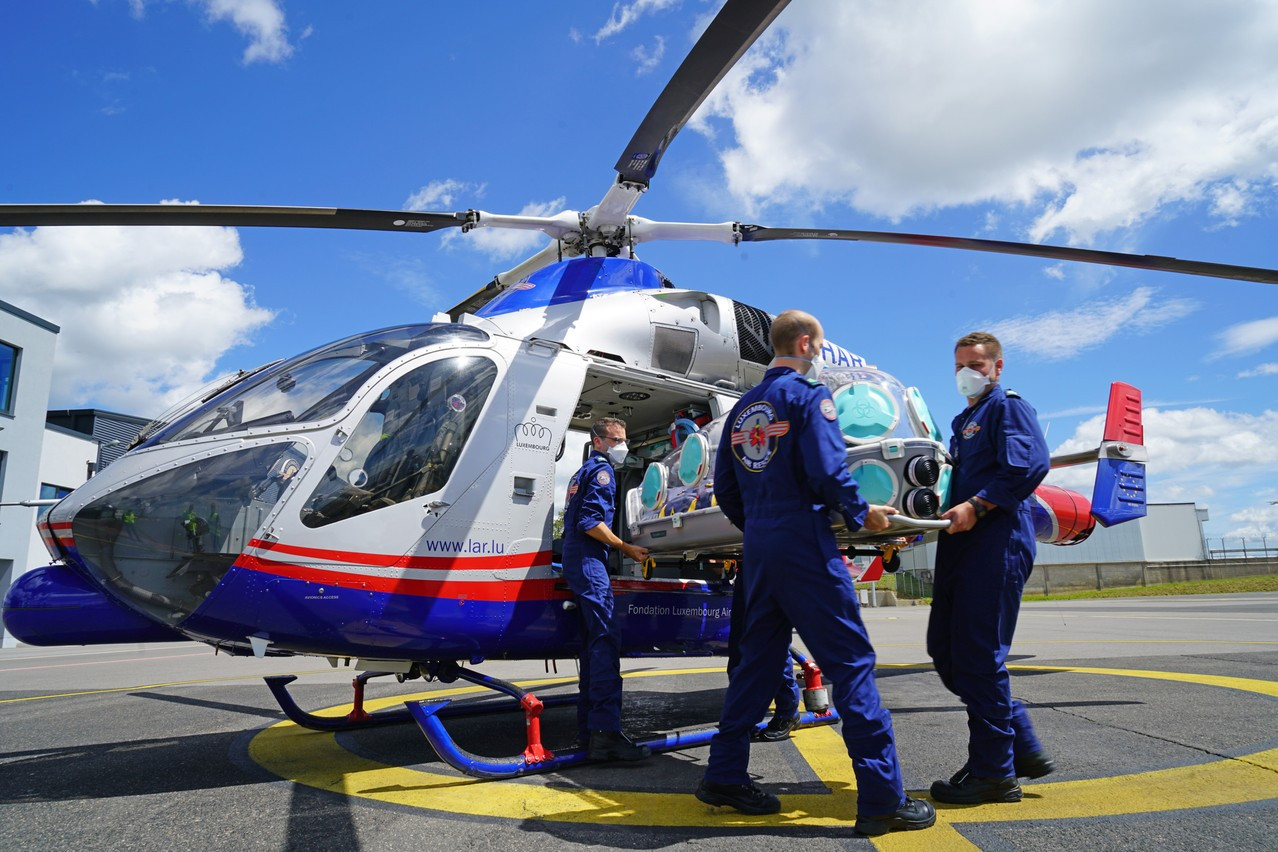Founded in 1988, it is the first time that the prize, that is awarded by the French and German minister delegates to Europe, has been given to a Luxembourg entity.
“It is the result of 33 years of hard work, but it is also the recognition of this small private Europe that we have created over the past fifteen years. We did not wait for policy to create our Europe and we did not wait for covid-19 to save lives. For the past 12 years, we have been working with a French partner, we transport 1,400 organs a year. For the past 15 years, we also have daily missions in Germany and we carry out an average of 1,100 operations a year," says LAR CEO René Closter.
A key player
With its unique equipment, LAR quickly emerged as a key player, ensuring, together with its German counterpart, "most of the air transport of French covid-19 patients in hospitals in neighbouring countries," France Diplomatie stressed.
“We are the only people in the world who can transport covid patients the way we do. It dates back to Ebola, when we had designed a cell that can be installed in our planes in 2 hours with the help of an English manufacturer," said Closter adding that "the air is changed every 10 minutes, it is filtered and the cell protects the flight crew as well as the health staff. We just got back from Russia and we were in Africa last week."
New aircraft in March
The health situation and the geographical break-up of the pandemic have prompted LAR to question the future. "The crisis has made us realise that our fleet will no longer be adequate in the future," Closter acknowledges. A reason to push the company to rethink its fleet, which currently consists of 6 aircraft and 6 helicopters. Two LearJets will be sold to finance the purchase of a much larger Challenger 605.
The arrival of the new aircraft--scheduled for delivery in March and the commissioning of the aircraft in July--will allow the company to approach the future more calmly. "Our planes are now capable of flying 4,500 km without refuelling. It is almost impossible to land somewhere to refuel when transporting a covid patient. In addition to that, there are situations where we are asked to repatriate directly from Asia or Africa. In these cases, we must sleep at those destinations so that the crew can have the necessary rest before leaving. The Challenger 605 can accommodate two crews, which will solve this probl em," the CEO said.
This article was originally published in French on Paperjam.lu and has been edited and translated for Delano.
